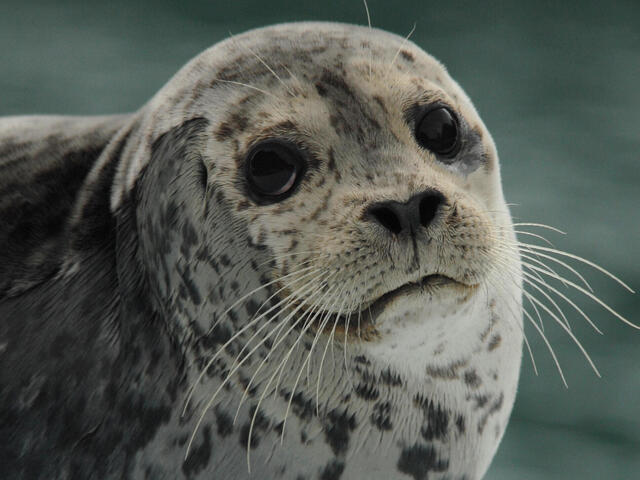Squirrels as Pets: What You Need to Know Before Adoption
Squirrels as pets: the complete reality check
The idea of keep a squirrel as a pet might seem charming. These agile, bushy tail creatures captivate us with their playful antics in parks and backyards. Nonetheless, the reality of squirrel ownership differ dramatically from these casual observations. Before consider a squirrel as your next companion animal, it’s essential to understand the full picture.
Legal considerations
The first and perchance virtually significant hurdle to squirrel ownership is legality. In most states across the u.s., keep native wild squirrels as pets is illegal without proper wildlife rehabilitation permits. These laws exist for good reasons:
- Wild animal protection
- Ecosystem balance maintenance
- Public health safety
- Animal welfare concerns
Some states may allow ownership of non-native species like flying squirrels, but yet these exceptions typically require special permits. Before pursue squirrel ownership, good research your local, state, and federal regulations. Violate wildlife laws can result in substantial fines and the confiscation of the animal.

Source: wonderopolis.org
Natural behaviors vs. Domestication
Unlike dogs and cats with thousands of years of domestication, squirrels remain essentially wild animals. This distinction create significant challenges:
Housing requirements
Squirrels need extensive space to climb, jump, and exercise. A typical cage won’t will suffice. Proper squirrel housing require:
- Large, custom build enclosures (minimum 4 ft × 4 ft × 8 ft tall )
- Multiple climbing structures and branches
- Nest boxes for security and sleeping
- Chew materials (essential for dental health )
- Enrichment toys and activities
The enclosure must be escape proof however provide adequate ventilation. Squirrels are exceptional escape artists with powerful teeth and claws that can chew through wood, plastic, and eventide some metals.
Destructive tendencies
Squirrels must chew invariably to maintain their always grow teeth. This natural behavior mean they will gnaw on:
- Furniture
- Electrical wires (create fire hazards )
- Baseboards and mold
- Books and papers
- Near anything accessible
Their claws, adapt for climbing trees, can destroy fabrics, wallpaper, and other household materials. Regular with dedicated chew toys, squirrel seldom limit their gnawing to appropriate items.
Territorial and defensive behaviors
Squirrels course defend their territory, specially during breed seasons. This can manifest as:
- Aggressive biting and scratch
- Mark behaviors (urine )
- Vocalizations (barking, chatter )
- Hide food throughout the home
These behaviors intensify as squirrels reach sexual maturity, typically roughly 10 12 months of age. Many antecedent docile juvenile squirrels become unpredictable and aggressive adults.
Diet and nutrition
Squirrels require a complex, specialized diet that mimic their natural food sources. Improper nutrition lead to serious health problems include metabolic bone disease, obesity, and dental issues.
Essential dietary components
-
Nuts and seeds:
Unsalted varieties include walnuts, hazelnuts, and pumpkin seeds -
Fresh vegetables:
Leafy greens, root vegetables, squash -
Fruits:
In moderation due to sugar content -
Protein sources:
Insects, eggs, occasional lean meat -
Specialized supplements:
Calcium and vitamin d3 are specially important
Food must be present in ways that encourage natural forage behaviors. Merely provide a bowl of mixed nuts is insufficient for both physical and psychological health.
Health and veterinary care
Find appropriate veterinary care present another significant challenge. Most small animal veterinarians lack specialized training in squirrel medicine.
Common health concerns
-
Metabolic bone disease:
From calcium / vitamin D deficiencies -
Dental problems:
Malocclusion, overgrown teeth -
Parasites:
Internal and external -
Respiratory infections:
Especially in inadequate housing -
Stress relate disorders:
Self mutilation, fur pull
Exotic animal veterinarian who treat squirrels are rare and typically charge premium rates. Emergency care can be especially difficult to find when need near.
Zoonotic disease concerns
Squirrels can carry diseases transmissible to humans, include:
- Salmonellosis
- Leptospirosis
- Various parasites
- Rabies (though rare in squirrels, unruffled a concern )
These health risks pose particular dangers to children, elderly individuals, and those with compromise immune systems.
Lifespan and long term commitment
Captive squirrels can live 10 20 years with proper care. This represents a significant long term commitment, specially consider:

Source: a z animals.com
- Difficulty find pet sitters familiar with squirrel care
- Challenges relocate with a squirrel
- Limited options if you can no farseeing care for the animal
Unlike dogs and cats, rehome a pet squirrel is highly difficult due to legal restrictions and specialized care requirements.
Social and behavioral need
Squirrels are not course socialize to humans. Yet hand raise babies typically become more independent and less handleable as they mature.
Time investment
Proper squirrel care require significant daily time investment:
- Enclosure cleaning (squirrels are not course clean animals )
- Food preparation and forage enrichment
- Supervise out of cage time (with extensive pet proofing )
- Social interaction and mental stimulation
Many owners find themselves unprepared for the time commitment require meeting these needs right.
Noise and activity levels
Squirrels are course crepuscular (nearly active at dawn and dusk )but can be active throughout the day. They make various vocalizations and create noise through constant movement and chewing. Their high energy levels can be disruptive, peculiarly in apartments or share living situations.
Alternatives to squirrel ownership
For those fascinate by squirrels, there be more responsible ways to enjoy these animals:
Wildlife rehabilitation
Consider volunteer with licensed wildlife rehabilitates who care for orphaned or injured squirrels. This pprovideshands-on experience while contribute to conservation efforts.
Ethical observation
Create squirrel friendly spaces in your yard with appropriate feeders and observation areas. Photography and nature journal offer fulfil ways to connect with wild squirrels without disrupt their natural behaviors.
Similar but more suitable pets
If you’re drawn to squirrel like qualities, consider these more domesticated alternatives:
-
Rats:
Intelligent, trainable, and authentically enjoy human interaction -
Degas:
Social rodents with diurnal activity patterns -
Chinchillas:
Farseeing live, active climbers with soft fur -
Ferrets:
Playful, intelligent pets with similar energy levels
These animals offer many of the engage qualities that attract people to squirrels but with breed histories that make them more suitable as companions.
The rescue dilemma
Occasionally, people encounter orphan or injure wild squirrels and feel compel to help. While this compassion is admirable, the appropriate response is contact license wildlife rehabilitates instead than attempt to raise the animal yourself.
Professional rehabilitates can:
- Provide proper medical assessment and treatment
- Offer species appropriate care
- Prepare the animal for eventual release
- Maintain the wild nature of the animal
Most wildlife agencies maintain directories of licensed rehabilitates. Contact these professionals should be your first step when find wildlife in distress.
Conclusion: are squirrels good pets?
Base on legal restrictions, natural behaviors, specialized care requirements, and ethical considerations, squirrel mostly do not make good pets for the average person. The challenges of provide appropriate care typically outweigh the perceive benefits of keep these wild animals in captivity.
The about responsible approach to appreciate squirrels involve admire them in their natural habitats while support conservation efforts that protect their wild populations. For those seek companion animals, the numerous domesticate species available make far more suitable and rewarding pets.
Before consider any exotic pet, good research legal requirements, care standards, and ethical implications. Responsible pet ownership begin with choose species whose needs you can full meet within the context of your lifestyle, resources, and applicable laws.
MORE FROM getscholarships.de













